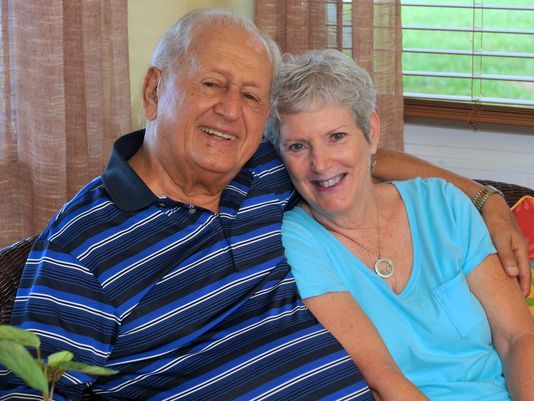Anne Cope was never alone.
As the 66-year-old endured chemotherapy while she battled ovarian cancer, she could count on one thing: her children would be there by her side.
Her husband, Nick Milonas, has serious health issues, which prevented him from being at the treatments.
“There’s a lot … you have appointments, blood work all the time, coming and going all the time, and my kids coordinated schedules, I didn’t have to do any of that,” said the mother of three. “The kids worked so well together as a team.”
The “kids” to whom she is referring are Greg Cope, 43, Teresa Cope, 42, and Jason Cope, 40.
Anne Cope was diagnosed with late Stage 3C ovarian cancer on Aug, 21, 2015. She was shocked. She had recently returned from Canada, where she was celebrating the 16th birthday of her granddaughter Serena by taking in some games of the 2015 Women’s World Cup.
The diagnosis was confirmed on Sept. 3, 2015.
“I was pretty numb by that point because I already had spent a week or two dealing with it,” she said. “When I saw (Melbourne gynecologic oncologist) Dr. (John) Bomalaski, I said just get it out of me. I was concerned about my husband and the kids. I was worried my husband’s health would suffer from the stress. For the kids, their dad (Bob Cope) had died of cancer just a couple of years before my diagnosis, and I was sad they would have to go through it again with another parent.”
Following a successful surgery in late September, doctors wanted to start Cope on a strong round of chemotherapy about a month later because she was deemed in good physical condition.
However, the treatment got her really sick and she ended up in the hospital. After a second round and a similar result, doctors decided to try different treatments.
“I wanted to keep doing it, but my body couldn’t take it,” she said. “Dr. Bomalaski said ‘we’re into killing cancer, not patient.’”
A new treatment was started consisting of the drugs Carboplatin and Taxol.
“That’s when I lost my hair,” she said. “You lose eye lashes, you lose hair everywhere. The other problem I had was my white cell count. I had to be careful about being in public places or having someone come to the home with a cold or being sick, so the one bad thing was I didn’t get to see the grandkids too much. I was too afraid they’d bring the flu or a cold from school.”
Cope has eight grandchildren, so being away from them was difficult. However, the treatments were working.
With every visit to the doctor, her blood work looked better and better.
When she finished her series of treatments in March 2016, the news couldn’t have been better.
“After the last treatment, my cancer blood count was down with hardly any showing,” Cope said. “They do use the term cancer-free. However, if it comes back, they call it a reoccurrence. With ovarian cancer, it’s pretty high for a reoccurrence. There’s about a 45 percent chance in late stage that you’ll have a reoccurrence.
“The big thing now is, they’ve done so well with the drugs, you can have reoccurrences and be fine. You go back into treatment. A reoccurrence does not mean the end. It just means it’s a reoccurrence.”
Over the past 19 months since she was given the all clear, Cope has gained weight (she had gotten as low as 102 pounds), her hair has grown back, and she’s worked her way back into good physical shape.
There is one thing she misses, however.
“When the treatment was over, one of the hardest things to get used to was going back to only seeing the kids once in a while because everyone was running around being parents and catching up on things,” she said. “I had been seeing them all the time. But I was fortunate. Some people don’t have this kind of help because they have kids with jobs where they can’t get time off to help, or they don’t have family members living nearby. I feel really blessed.”
To read this entire article in The Clearity Portal, please click here to login.


